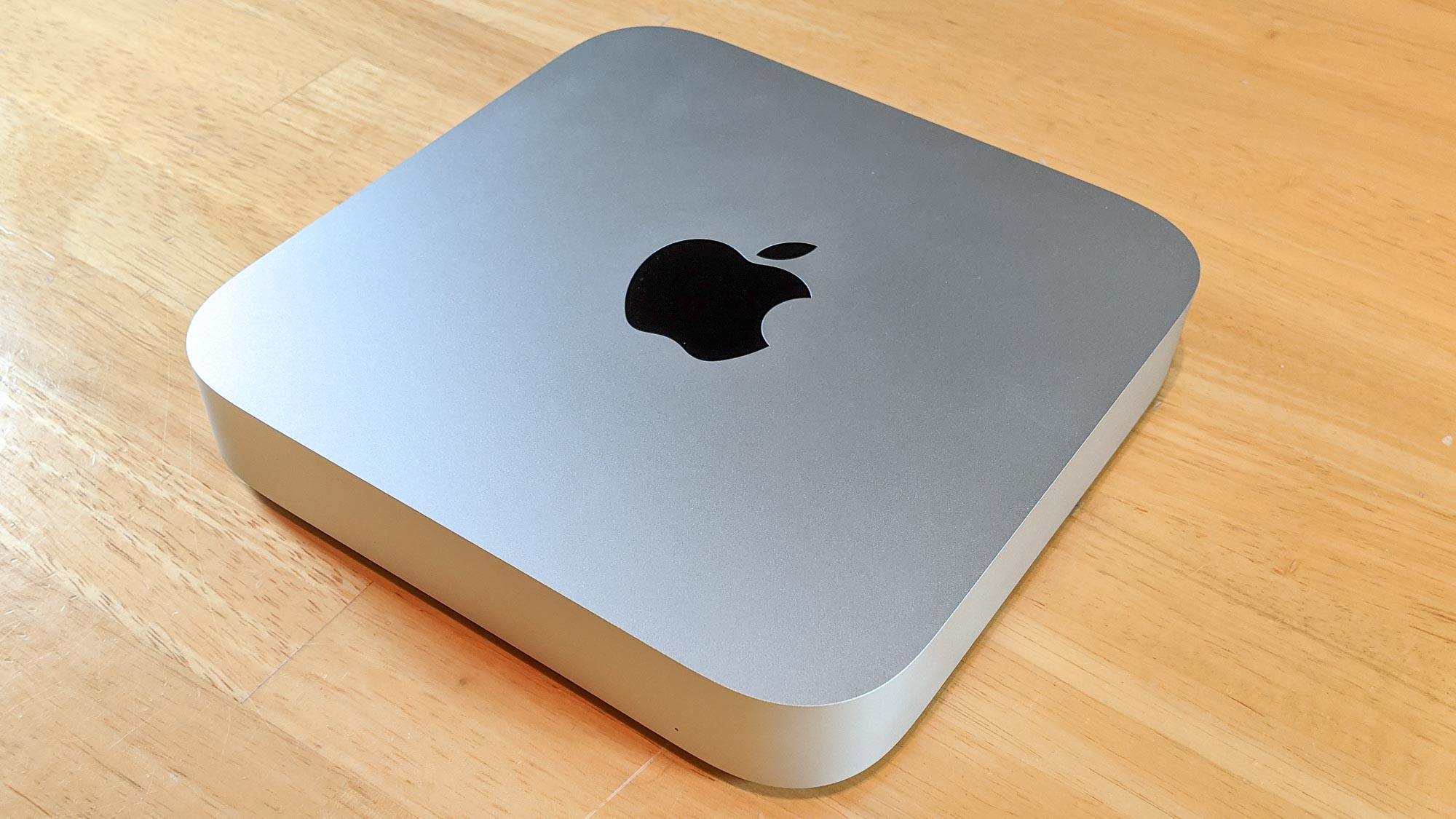The new Mac mini M1 has a huge advantage — and it's not just speed
Apple’s M1 chip makes the new Mac mini a powerhouse that doesn’t draw much power

When the Apple M1 chip (aka Apple Silicon) was first introduced at the company’s November 10 event, it was clear that the new chip would be energy efficient. Apple talked at length about the improvement to both battery life and performance — two things that don’t usually go hand in hand — but we’re only now appreciating exactly how power efficient the chip is.
Apple has published data on how the M1 powered Mac mini fares against previous computers, and there’s no contest both in terms of power draw and thermal output.
- What's the best MacBook you can buy?
- MacBook Air vs Pro: What's right for you?
- PLUS: Over-the-air wireless charging is finally coming — here’s your first look
As you can see from the section of the data republished below, Apple’s data goes all the way back to 2005’s original PowerPC G4 packing model, and the M1 powered 2020 version improves on its predecessors in every measured efficiency metric.
| Model | Power consumption (idle) | Power consumption (load) | Waste heat (idle) | Waste heat (load) |
|---|---|---|---|---|
| Mac mini (M1, 2020) | 6.8W | 39W | 23.2 BTU/h | 133 BTU/h |
| Mac mini (Intel Core i7, 2018) | 19.9W | 122W | 68 BTU/h | 417 BTU/h |
| Mac mini (Intel Core i5, 2014) | 6W | 85W | 20 BTU/h | 290 BTU/h |
| Mac mini (Intel Core i5, 2012) | 11W | 85W | 38 BTU/h | 290 BTU/h |
| Mac mini (Intel Core i5, 2011) | 14W | 85W | 38 BTU/h | 290 BTU/h |
| Mac mini (Intel Core 2 Duo, 2010) | 10W | 85W | 34 BTU/h | 290 BTU/h |
| Mac mini (Intel Core 2 Duo, 2009) | 14W | 110W | 48 BTU/h | 376 BTU/h |
| Mac mini (Intel Core 2 Duo, 2007) | 23W | 110W | 79 BTU/h | 376 BTU/h |
| Mac mini (Intel Core Duo, 2006) | 23W | 110W | 79 BTU/h | 376 BTU/h |
| Mac mini (PowerPC G4, 2005) | 32W | 85W | 110 BTU/h | 290 BTU/h |
To emphasize exactly how far we’ve come, it’s fascinating to note that the original Mac mini — with its 1.25GHz processor and 256MB (yes, MB) RAM — expended nearly the same amount of energy when idle as the current model uses under load. We truly have come a long way.
Of course, while most of the data is (in home computing terms) ancient history, it’s the new Mac mini’s stats relative to the 2018 6-core Intel Core i7 model that really shows you the improvement. The new Mac mini consumes ~13W less power when idle and a whopping 83W less under load. That means that while the 2018 Mac would waste 68 BTU/h when idle and 417 BTU/h under load, the newer model expends just 23 BTU/h and 133 BTU/h in the same states.
Of course, this isn’t an entirely fair comparison, because the 2018 Mac mini used a desktop-class processor and the new Mac mini packs the same chip as found in both the new MacBook Air M1 and MacBook Pro M1. But given that the Apple M1 powered Mac mini outperforms the 2018 model by over 50% in benchmark tests, that feels like a moot point.
As we wrote in our Mac mini with M1 review, it’s “cheaper, faster, and keeps everything we loved about the Mac mini while changing up both the internals and where Apple sits in the larger industry.” So it’s probably a positive that the rumor is that Apple will give the 2021 iMac the M1 treatment next.
Get instant access to breaking news, the hottest reviews, great deals and helpful tips.
Those who need wider software support will be relieved to hear that the Apple is apparently also plotting an Intel version of the 2021 iMac for those who aren’t quite ready to make the transition. Judging by what we’ve seen, those shoppers will have to settle for higher electricity bills.
Freelance contributor Alan has been writing about tech for over a decade, covering phones, drones and everything in between. Previously Deputy Editor of tech site Alphr, his words are found all over the web and in the occasional magazine too. When not weighing up the pros and cons of the latest smartwatch, you'll probably find him tackling his ever-growing games backlog. He also handles all the Wordle coverage on Tom's Guide and has been playing the addictive NYT game for the last several years in an effort to keep his streak forever intact.
 Club Benefits
Club Benefits






